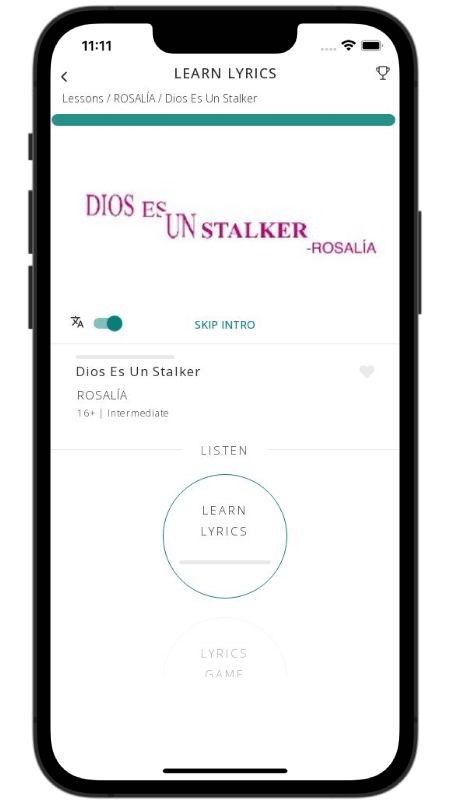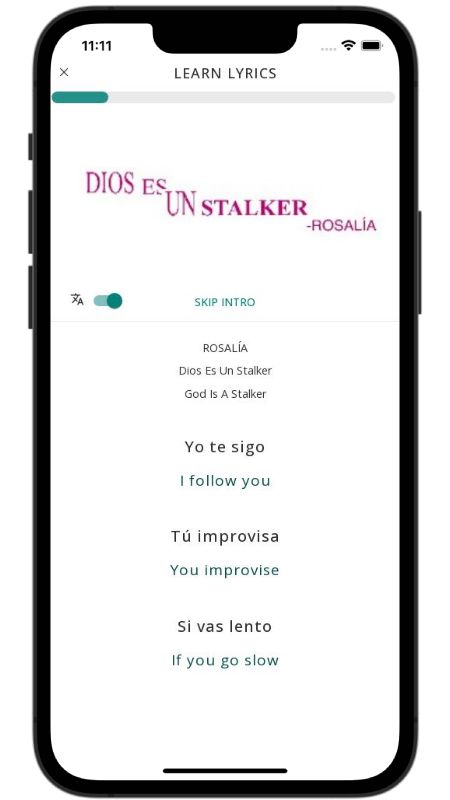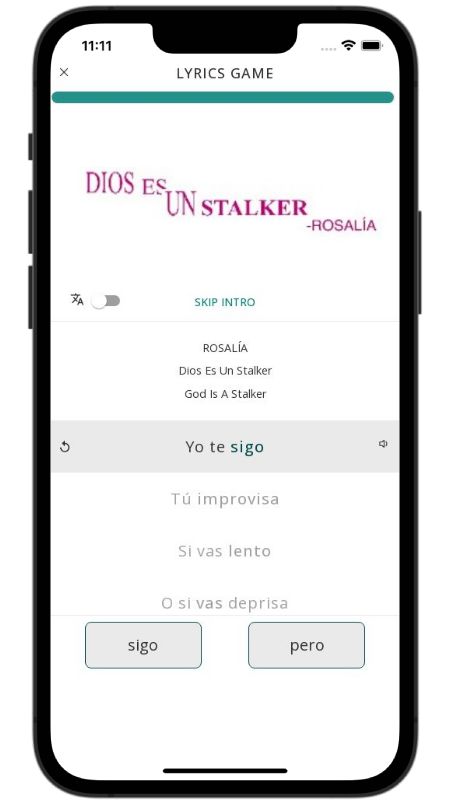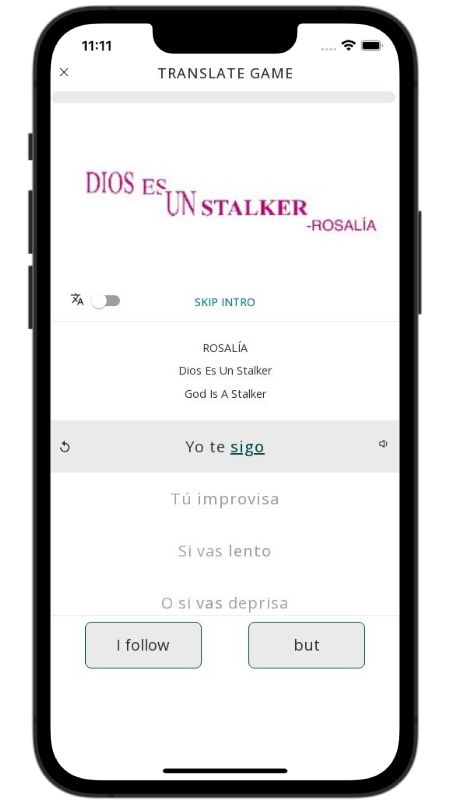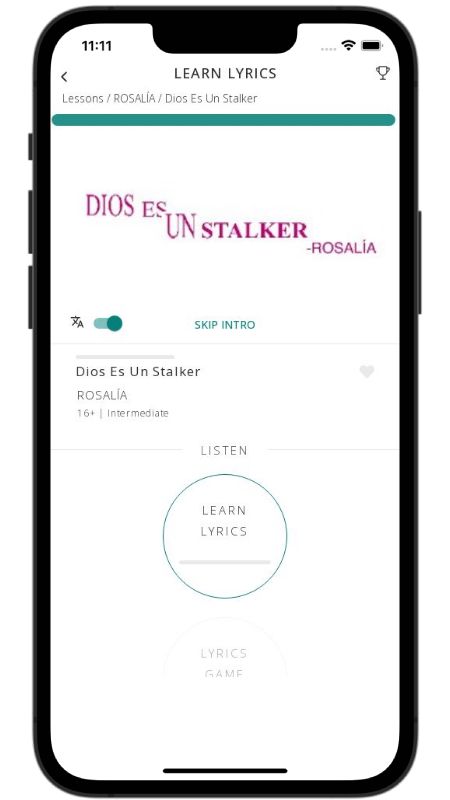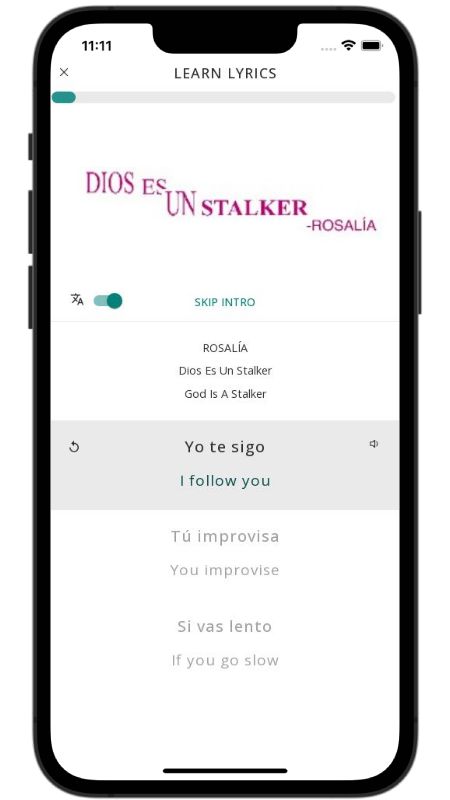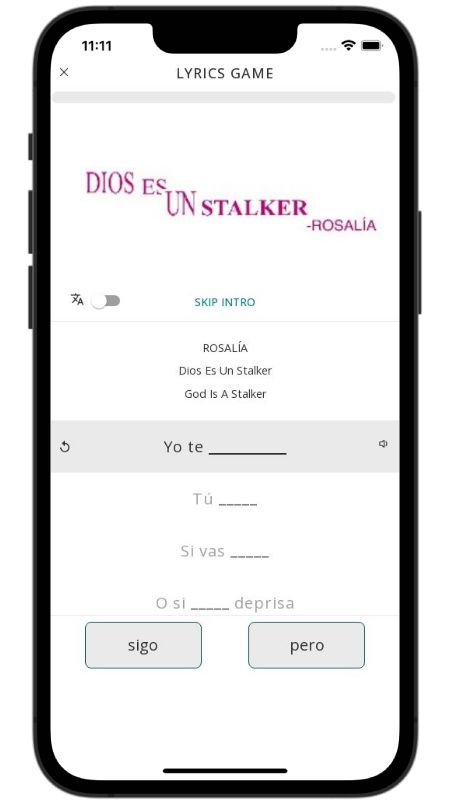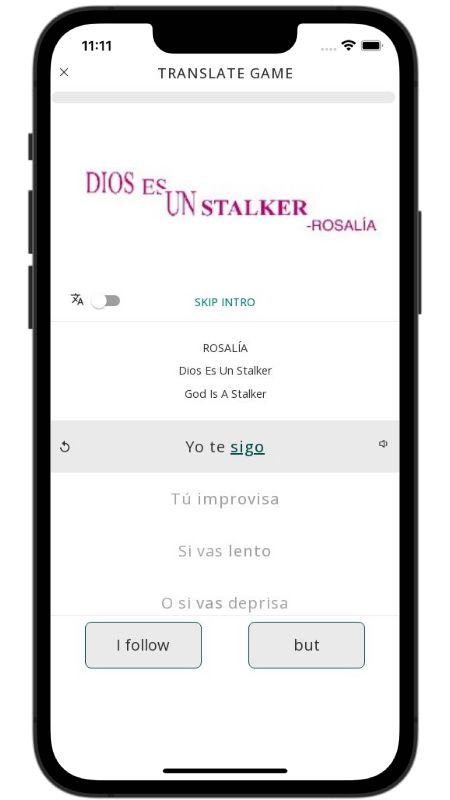Dios Es Un Stalker Lyrics in English ROSALÍA
Below, I translated the lyrics of the song Dios Es Un Stalker by ROSALÍA from Spanish to English.
These lyrics have verified word for word translations. Click any lyric word to see the translation and hear the pronunciation!
I follow you
You improvise
If you go slow
Or if you go fast
You never realize
That I'm your shadow
And that's my way
To show I’ve thought of you
And I've missed you
I know
Your forbidden desires
My breath is
The wind that
Brushes your hair
And for love I'm behind
I'm right behind you
I who always wait for them to come to me
I don't like playing divine intervention
But I'm gonna stalk my babe
To make him fall in love
I love in my own way
Here and wherever
My silence hits
Mistress of the world and ideas
Everybody wants me on their side
My inbox's blown up
I live up in the clouds
And the devil's pressed, uptight
I love racing against time
To see which of us reaches you first
I'm not a one-off b*tch
I'm the maze you can't escape
I'm right behind you
I who always wait for them to come to me
I don't like playing divine intervention
But I'm gonna stalk my babe
To make him fall in love
I'm right behind you
I, who's always been so spoiled
And omnipresence has me drained
But I'm gonna kidnap this heart
And chase it mercilessly
Lyrics and Translations Licensed & Provided by LyricFind
Did you like this lyrics translation?
Did you know?
In addition to reading lyric translations, you can now learn Spanish with music and lyrics from your favorite artists.
Yes, including Dios Es Un Stalker by ROSALÍA!
No more boring lessons. You can now learn with engaging and culturally relevant lyrics from the best artists.
Apple and App Store are trademarks of Apple Inc.
Google Play and the Google Play logo are trademarks of Google LLC.
iOS AppAndroid AppWeb LessonsFree PDF WorksheetsJoin ClassroomLyrics TranslationBlogAbout UsBuy as GiftLifetime
